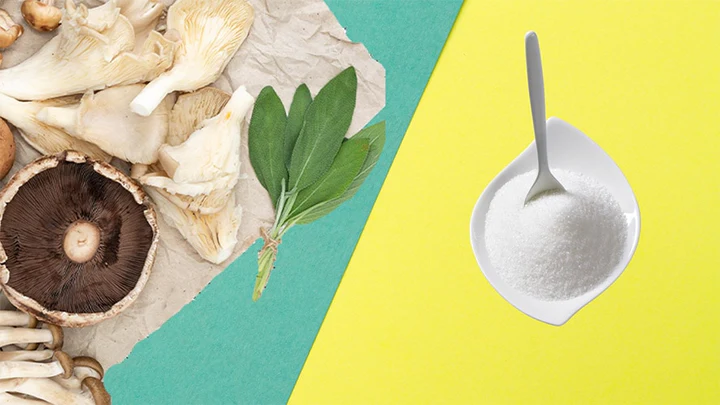Sugar is the latest in a whole host of food enemies from fat to carbohydrates, and most will agree that excess sugar, particularly in its refined processed form, is not the most beneficial food for health. It pops up in everything from cereals to crisps and sauces, it’s a cheap ingredient that manufacturers can use to make food tastier and leave us wanting more of it.
Sugar Facts:
Sugar is addictive. It releases an opiate-like substance that activates the brain’s reward system. Studies have shown it to be more addictive than some narcotics.
Consuming excess sugar depletes the body of B vitamins. Vitamin B deficiency causes symptoms like heart palpitations, chronic fatigue, paranoia, anxiety, insomnia, poor concentration, indigestion, and more cravings for sugar.
Sugar makes the digestive system acidic, which leaches vitamins and minerals from the body. It also depletes potassium and magnesium, which are both essential for cardiac health and can cause risk of later heart diseases.
Excess sugar affects blood flow and can speed up ageing, affecting collagen production and leading to increased wrinkles and dry skin.
Our blood sugar levels naturally rise and fall throughout the day, though we tend to function best within a narrow range. We can regulate our blood sugar levels through exercise and a balanced diet to support hormonal health and reduce the risk of later health issues caused by chronically elevated levels which can lead to insulin resistance and heart diseases.
When we eat, carbohydrates break down into sugar and enter the bloodstream as glucose, insulin acts as a regulator to help move this into the cells or storage for later. Without an adequate amount of insulin, people can experience high blood sugar, and over time chronic high blood glucose levels increase the risk for diabetes and other health conditions and eventually the pancreas just get overworked and stops producing insulin properly, leading to insulin resistance.
Top tips to manage your blood sugar level
Avoid blood sugar spikes and lower your risk for diabetes with our tops tips for blood sugar control:
Protein
Vital for satiation and stabilising blood sugar, and avoiding blood sugar spikes. Make sure to have a good source with every meal.
Healthy fats
Provides better long-term stable energy levels and may help to reduce blood sugar levels.
Avoid excess sugar
Eating foods high in refined sugars leads to blood sugar spikes and unbalanced hormones.
Spice up your life
Spices like cinnamon have been shown to aid blood glucose management, so it’s important to include these throughout the day.
Good quality sleep
Not getting enough sleep is linked to increased blood sugar levels and insulin resistance, as well as increasing risk for diabetes and other heart diseases.
De-stress
Stress can increase blood sugar, as it causes the body to release hormones which can increase blood sugar levels.
Physical activity
Increases sensitivity of the cells to the hormone insulin and stimulates cells to remove sugar from the blood. Chronic exercise can play havoc with hormones though so focus on more gentle, restorative forms like walking, pilates and yoga.
Mushrooms
Adding mushrooms to your diet can be a great way to increase nutrition as they provide a range of health benefits, they are low calorie but nutrient-dense, and low in carbohydrates meaning they have no significant effect on blood sugar levels.
Mushrooms and blood sugar balance
Many studies have shown the benefits of mushrooms for blood sugar management. A recent study found that consuming white button mushrooms can modify the gut microbiome leading to improved glucose regulation which has implications for metabolic diseases, potentially reducing risk for diabetes.
Another study showed portabello mushrooms have blood sugar-stabilising benefits. Beta-glucans a compound in mushrooms are a soluble dietary fibre that has been shown to aid blood sugar regulation which is beneficial for people with diabetes.
Medicinal mushrooms also show many benefits for blood sugar control. One study found 95% of patients showed improvements in blood sugar control using 3g of Cordyceps a day.
Cordyceps is also a traditional kidney tonic, and in diabetes, the kidneys are one of the key sites of damage from high blood sugar levels.
Reishi and Lions Mane have also been shown to lower blood sugar levels and bring down high levels of insulin.
Maitake has also been shown to improve blood sugar regulation, lowering blood glucose levels and improving insulin sensitivity (check the study here). Maitake also contains a compound called trehalose which has been shown to inhibit alpha-glucosidase leading to less glucose being absorbed.
Sugar is the current health enemy, and for good reason. In moderation a little bit is fine, but when our diets are based around excess sugar, it causes an inflammatory cascade, and leads to blood sugar spikes that can have long term health implications, and increase the risk for diabetes and heart diseases.
Make some small changes to your diet and lifestyle to try and reduce sugar consumption and increase physical activity, and add in mushroom supplements, spices and protein that help to balance those blood sugar levels, keeping your energy stable through the day and helping you on the road to health and well-being.

